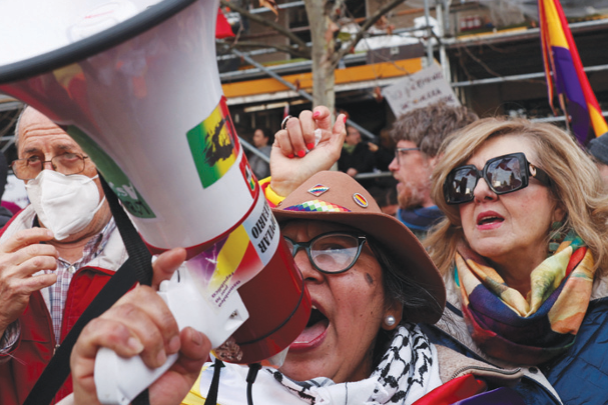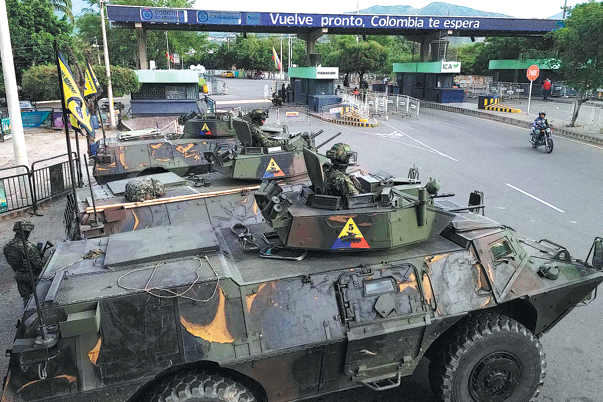Iran warns Israel against attacks
Tensions in Middle East escalate amid pleas by experts for diplomatic solution


Editor's note: As the world marked the anniversary of the Palestine-Israel conflict, triggered by Hamas' Oct 7 attacks on southern Israel, this page captures the heightened tensions and multifaceted conflicts gripping the Middle East and beyond. These reports reflect on the effect of recent developments and the broader pursuit of peace and justice.
As the world marked the anniversary of the Palestine-Israel conflict, Iran reiterated on Monday it does not seek to aggravate tensions in the Middle East but would give a strong and appropriate response to any new act of Israeli aggression.
Iranian Foreign Minister Abbas Araqchi remarked in a phone conversation with his Egyptian counterpart Badr Abdelatty, where they discussed the latest developments in the region, the official Islamic Republic News Agency reported.
"The Islamic Republic of Iran does not seek to escalate tensions and war in the region, but it is not afraid of war either," IRNA quoted Araqchi as saying. "It will give a strong and appropriate response to any new move and adventurism by the Zionist regime."
Last week, Iran launched a barrage of ballistic missiles at Israeli military and intelligence bases in retaliation for Israel's campaign of aggression and assassination in the region. Araqchi and Abdelatty also renewed their calls for a cease-fire in Gaza, an end to Israeli attacks on Lebanon and the delivery of humanitarian aid to refugees.
On Oct 2, Araqchi said on X that his country exercised self-defense under Article 51 of the United Nations Charter, and that it did so "after exercising tremendous restraint for almost two months, to give space for a cease-fire in Gaza".
"Israel's enablers now have a heightened responsibility to rein in the warmongers in Tel Aviv instead of getting involved in their folly," Araqchi wrote.
Article 51 of the UN Charter states that nothing in the present Charter "shall impair the inherent right of individual or collective self-defense if an armed attack occurs against a Member of the United Nations, until the Security Council has taken measures necessary to maintain international peace and security".

































